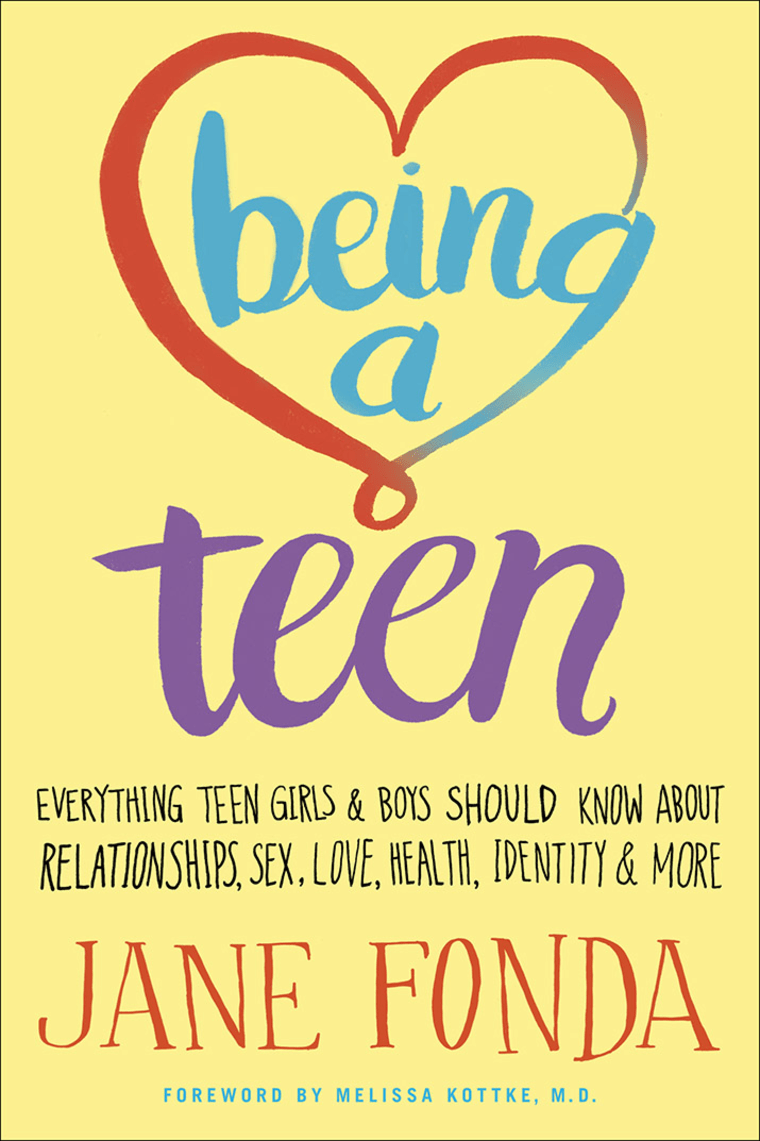In "Being a Teen," Jane Fonda helps cut through the fog and mythology of teenage sexuality and identity with some frank, straight talk about growth and development that will help teens and parents alike. Here's an excerpt.
What This Book Is All About
Your Developing Identity
This is an important time in your life. Who you are as a person—your identity—is being developed, and you are beginning your lifelong journey of personal sexual understanding and expression. By identity, I mean your values, your beliefs, what you like and don’t like, how you treat others, and how you treat yourself. Yet this is also a time when there are so many pressures to be how others want you to be. You may be tempted to be different from who you really are so that you’ll be popular with a certain group, or seem cool.
Sexuality is not just about body parts, STIs, and contraception. It is also a large part of a person’s identity, and that is why this book is also about relationships and feelings. How you understand and deal with them will help form your identity. I also write about the media and culture because they, too, can influence your identity—and not always for the good.

Adolescence is the gateway to adulthood, a stage of life filled with changes, with its own unique joys and challenges. In this book, I’ve tried to address the whole you, all the different parts—the physical, mental, and emotional things that are part of the adult person you are becoming.
Key Ideas I Hope You’ll Learn
Here are the key ideas I hope you’ll learn from this book:
- This is the time in your life when you should begin to really know who you are as a person, who you want to be, what values you claim for yourself. Knowing who you are will help you make decisions that are right for you.
- Your body is still developing and you have a right to understand how it is changing. Your body is not to be feared, nor should you feel shame or guilt about it, no matter what.
- Abstaining from sexual intercourse when you are young is the best way to reduce your risk of pregnancy and infection—of course!
- Do not start having sex just because your friends say they are sexually active.
- You can say “no” to any form of sex—kissing, touching, anything—anytime you feel like it, for any reason. Boys and girls are both responsible for seeking each other’s permission before any sexual touching advances.
- If you start having sex, be sure you are able to discuss contraception with your partner and use it correctly every single time.
- Being with someone you trust and can communicate with, besides someone who turns you on, helps ensure your experience will be pleasurable. Young men and women are both responsible for talking about feelings and asking about feelings.
- If you have been sexually abused, assaulted, or harassed, it was not your fault. You need to talk right away with a trusted adult and tell them what has happened to you.
This Is a “Dip-in” Book
You don’t need to read this book from start to finish—although I hope you will. You may prefer to dip in and out of this book, or read the parts you most want to know about. Flipping to topics of particular interest to you is fine, and I’ve structured the book that way. I hope you enjoy it and learn from it.
Excerpted from Being a Teen by Jane Fonda Copyright © 2014 by Jane Fonda. Excerpted by permission of Random House Trade Paperbacks, a division of Random House LLC. All rights reserved. No part of this excerpt may be reproduced or reprinted without permission in writing from the publisher.